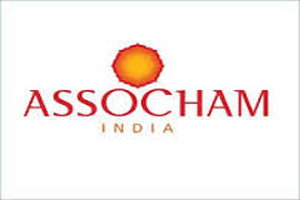
Anti-dumping duty on PTA to affect domestic user industry
YarnsandFibers News Bureau 2014-04-02 15:45:00 – New DelhiThe Associated Chamber of Commerce and Industry of India (ASSOCHAM) is clearly expressed its discontent against government imposing of anti-dumping duty on imports of Purified Terephthalic Acid (PTA) into India due to broad divergence in its demand supply. With the imposition of anti-dumping duty, it will make imports tremendously high priced for purchase by the domestic users of PTA who is already under pressure to survive. The Indian domestic user industry will become uncompetitive.
In a representation sent out to the government by ASSOCHAM, it has mentioned that despite of domestic industry using up more than 100% capacity, yet there is a substantial demand supply gap existing in India which is to be inevitably satiated by imports.
The imposition of anti-dumping duty on PTA will austerely rein in the production of downstream products such as polyester filament yarn, polyester staple fibre and synthetic textiles due to which total exports from India will suffer as PTA has major contribution in it. The EU market may soon be closed to Indian exports of the above products due to the anti-subsidy investigation on PSF imports currently being conducted by EU. PSF exports from India to EU were 63241 MT in 2012, thus highlighting the significance of exports of only one of the numerous downstream products of PTA.
According to the chamber, during 2012-13, India imported 6,47,959 MT of PTA as the total industry production was 34, 76,144 (MT) against the demand of 41, 24,103 (MT) this excluded captive consumption by the PTA producers. Currently, India imports PTA from China, Korea, Thailand and European Union.
PTA imports was to help domestic industry in small and medium sized category to tide over its shortage to enable them manufacture of polyester staple fiber, polyester filament yarn, polyester film and other value added products.
Also during 2011-12 and 2012-13, the price of naphtha (raw material for the production of paraxylene (PX) did not increase at the rate the prices of PX increased. All the same, the increase in prices of Naphtha was proportionate with increase in prices of PTA.
Moreover, it is seen that there is a significant as well as a comparative decline of imports of PTA from China, EU, Korea and Thailand over 2010-11, 2011-12 and 2012-13 with the landed value of PTA having increased time after time and considerably over the period.
Market Intelligence
Ask for free sample Report

experience
Customer Base
dedicated team
Countries Served Worldwide









